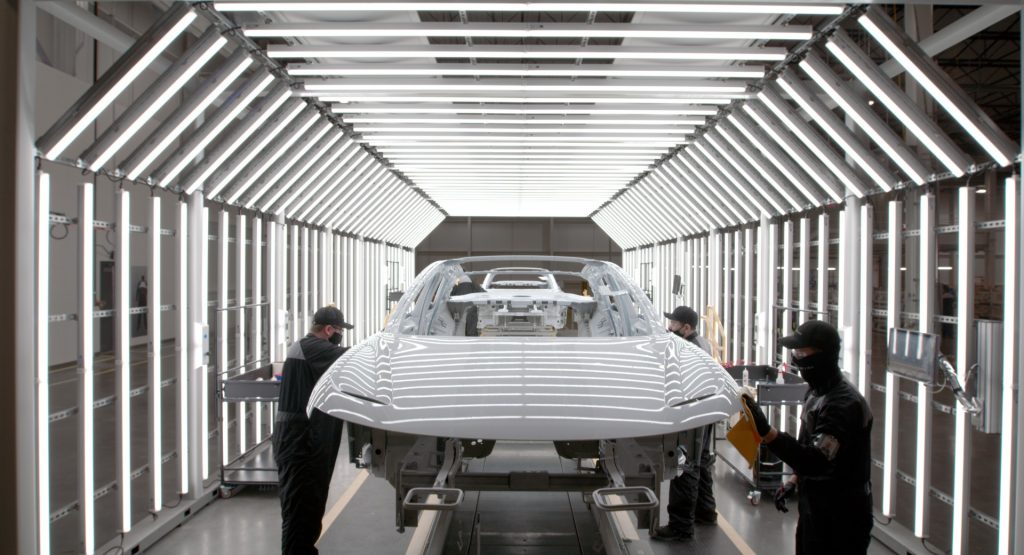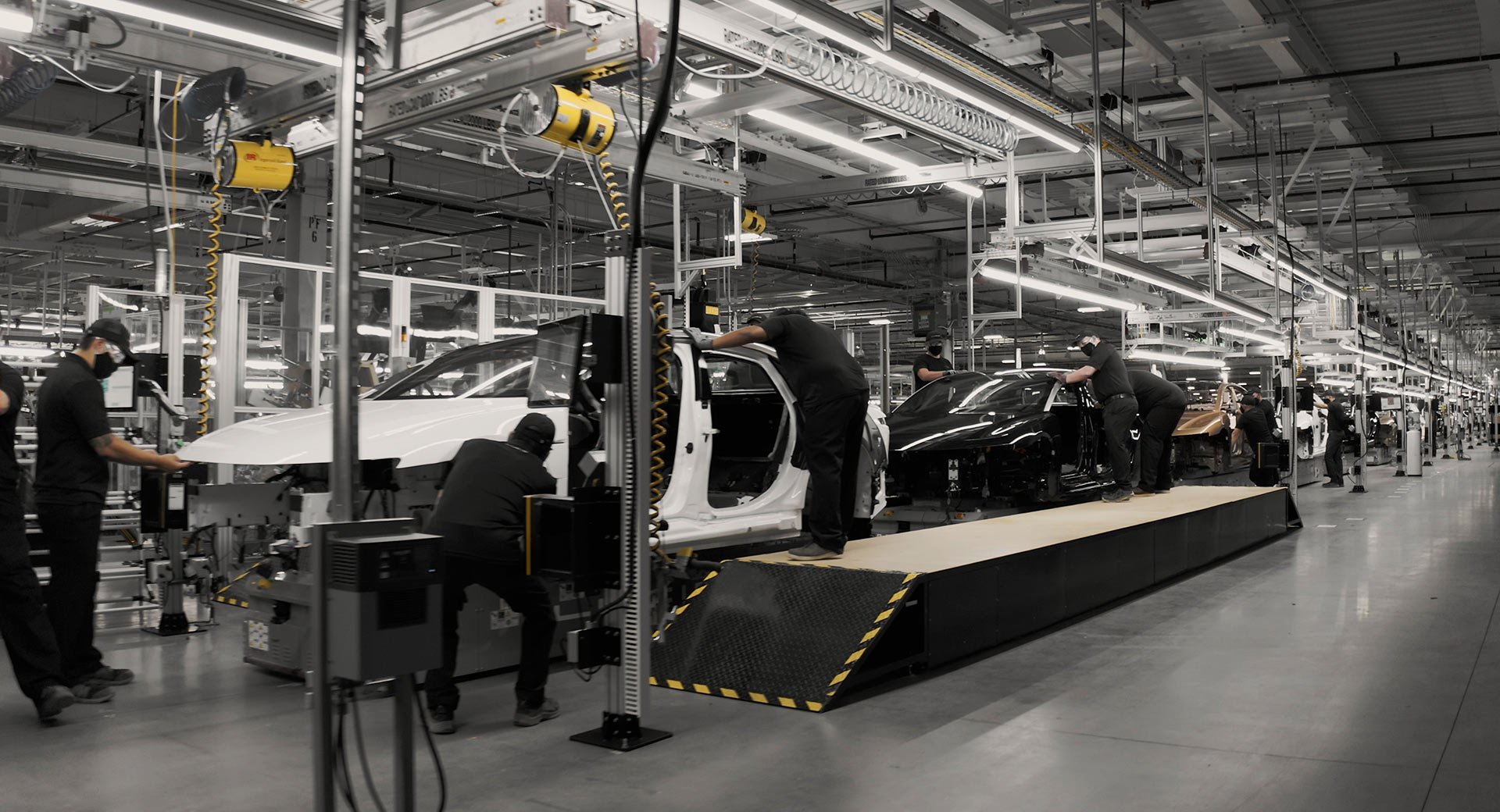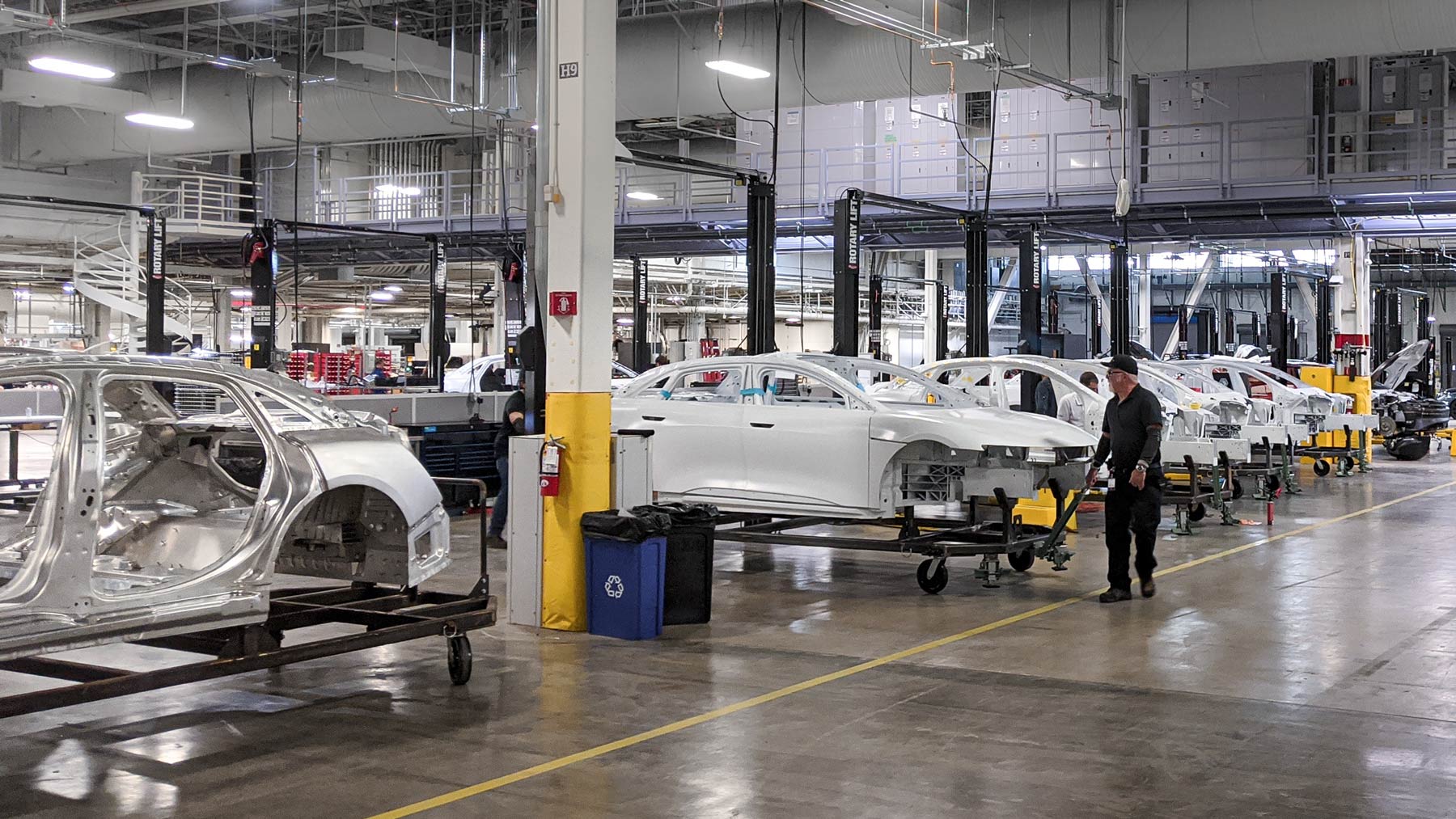It’s certainly no secret that launching an all-new car company is difficult but to hear current and former Lucid employees tell it, it’s been hell getting the Air off of the ground. While many other automakers struggle to reach production goals due to global factors it sounds like Lucid has some unique challenges that it’s trying to overcome with unusual solutions.
Just over a dozen different individuals including both current and former employees spoke to Business Insider about the conditions at Lucid and none of them painted a rosy picture. A former supervisor told them that the company was “running by the seat of our pants.”
That might be the most mellow comment considering that others claimed that “Every other car needed some sort of rework after the fact… Cars would come off the line 80% done.” And that’s a huge problem for Lucid and its CEO, Peter Rawlinson, for a number of reasons.
Read Also: Lucid Air Grand Touring Performance Debuts With 1,050 HP And A $179k Price Tag
The Air is not a cheap vehicle even if you’re willing to wait for its $77,400 trim level which has no hard production start date. Despite the production issues, the brand seems to want every car to be as close to perfection as possible before it’s delivered.
On a fourth-quarter earnings call last year, Rawlinson specifically said “you can’t sell a single quality car unless those visible parts are absolutely perfect.” That desire to be nearly perfect has slowed production in its own way according to the report but a lack of supplies hasn’t helped either.
Evidently, Lucid isn’t struggling to get batteries or semiconductor chips like everyone else, no, they’re struggling to get glass and carpet among other things. Rawlinson actually said something of that nature himself on another call in February. “We’re not talking about fundamental technologies here… We’re talking largely, paradoxically, commodity suppliers: finishes, carpet, glass, and things like that.”
Using Amazon Parts To Complete Cars
The problem is so bad that the report says that Lucid has resorted at times to ordering non-critical plastic parts like adhesives and even push-start buttons off of Amazon just to complete cars. In addition, they willingly sent many corporate employees from California to Nevada to physically assist on the production line.
Multiple departments have reported 100-hour workweeks as well. It’s fair to say that lots of start-ups go through similar issues and concerns as they figure out exactly how to produce their products and scale-up. At the same time, it seems like a clear indication of why Lucid missed its production goal last year and slashed it dramatically for this year as well.






